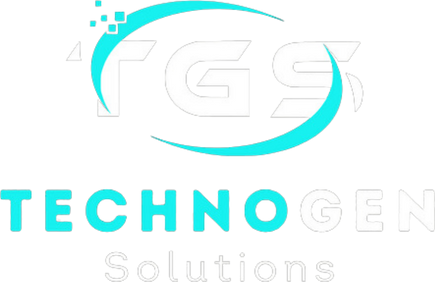In today’s digital age, every website competes for visibility. To stand out, businesses must understand the importance of Search Engine Optimization (SEO). SEO is not just a buzzword; it’s a critical aspect of any digital marketing strategy that directly affects your website’s traffic. Effective SEO can significantly boost your website’s visibility, driving organic traffic, and leading to conversions. Here’s a complete guide to why SEO matters for your website traffic.
What is SEO?
Search Engine Optimization (SEO) refers to the practice of optimizing your website to rank higher in search engine results pages (SERPs). It involves both on-page SEO (optimizing the content and structure of the website) and off-page SEO (building backlinks and improving online reputation). The better your SEO, the more likely your site will appear when users search for relevant topics.
Why SEO is Essential for Driving Traffic
1. SEO Increases Organic Search Traffic
The most obvious reason SEO matters is that it increases organic traffic—the visitors that find your website through search engines. Unlike paid ads, organic traffic is free, but it requires strategic optimization to make your website rank higher. Google, the most widely used search engine, uses a complex algorithm to rank pages based on relevance and user experience. When you optimize your site, you improve its chances of appearing at the top of search results.
2. Improves User Experience (UX)
Search engines reward websites that offer a superior user experience. Factors like page load speed, mobile-friendliness, and intuitive navigation play a critical role in how your site ranks. By focusing on SEO best practices, you automatically improve your website’s usability, making it easier for users to find what they need. This not only helps your rankings but also ensures that visitors stay longer, engage more, and return in the future.
3. SEO Builds Credibility and Trust
Users are more likely to trust websites that appear on the first page of search engine results. SEO helps you gain that trust. By optimizing your content and building quality backlinks from reputable websites, you establish authority in your niche. Search engines like Google also prioritize websites that show trustworthiness through secure browsing (HTTPS) and an optimized user experience.
The Core Components of Effective SEO
1. Keyword Research
Keyword research is the foundation of any successful SEO strategy. Identifying the terms that your target audience is searching for is crucial. By integrating high-value keywords into your content, you signal to search engines that your site is relevant to specific queries. Effective keyword research involves using tools like Google Keyword Planner or SEMrush to find the most popular and competitive keywords in your industry.
2. On-Page Optimization
On-page SEO focuses on optimizing elements of your website that are directly within your control. These include:
- Meta titles and descriptions: Ensure each page has a unique, compelling meta title and description that include primary keywords.
- Header tags (H1, H2, H3, etc.): Use header tags to structure your content and include relevant keywords.
- URL structure: Make your URLs concise and keyword-rich.
- Internal linking: Link to relevant pages within your website to help search engines crawl your site more efficiently.
- Image optimization: Use descriptive file names and alt tags for images to boost search engine visibility.
3. Off-Page Optimization
While on-page SEO focuses on what you control on your site, off-page SEO is all about building authority through backlinks. Backlinks from high-quality, relevant websites signal to search engines that your site is credible. Some effective off-page strategies include:
- Guest blogging: Write articles for reputable websites to earn backlinks.
- Social media engagement: Sharing content on social media platforms increases its visibility and generates social signals that help with ranking.
- Influencer outreach: Collaborate with influencers to share your content and get links from authoritative sources.
4. Technical SEO
Technical SEO refers to optimizing the backend structure of your website to ensure it can be easily crawled and indexed by search engines. Important elements of technical SEO include:
- Site speed: A slow website negatively affects both user experience and search rankings. Use tools like Google PageSpeed Insights to monitor and improve your site’s loading speed.
- Mobile optimization: With the majority of web traffic coming from mobile devices, optimizing for mobile is critical.
- XML sitemaps: A sitemap helps search engines understand your website structure, making it easier for them to index your content.
- SSL certificates: Having an SSL certificate ensures that your website is secure, which is a ranking factor in Google’s algorithm.
Local SEO: A Game Changer for Small Businesses
If you’re a local business, local SEO can make a huge difference in driving traffic. Google My Business (GMB) is an essential tool that helps your business appear in local search results. Optimizing your GMB listing with accurate information, reviews, and photos can increase your visibility in local searches.
For example, if someone searches for “best paint services in Dubai,” your business should ideally appear in the local 3-pack of Google results. This can drive significant foot traffic and website visits.
Content is Still King
No matter how much technical optimization you do, content remains the cornerstone of any SEO strategy. Search engines value high-quality, relevant content that provides real value to users. Content should be:
- Comprehensive: Cover your topic in-depth to satisfy user intent.
- Engaging: Use visuals, infographics, and multimedia to engage users.
- Fresh: Regularly update your content to keep it relevant and up-to-date.
A well-optimized website with fresh content is more likely to rank higher and drive consistent traffic.
How SEO Boosts Conversion Rates
Getting visitors to your site is only half the battle. SEO can also improve your conversion rates by bringing in highly targeted traffic. When users find your site through relevant keywords, they are more likely to be interested in your products or services. By aligning your SEO efforts with your target audience’s needs, you ensure that the traffic you’re driving is more likely to convert into leads or sales.
Conclusion: SEO is a Long-Term Investment
SEO is not a one-time fix; it’s an ongoing process that requires time, effort, and a strategic approach. However, the results are worth the investment. A well-executed SEO strategy can significantly improve your website’s visibility, drive organic traffic, and ultimately, increase your revenue.
As the digital landscape continues to evolve, staying up to date with the latest SEO best practices is essential for maintaining and improving your search rankings. With a comprehensive SEO plan, your website will not only attract visitors but convert them into loyal customers.






Leave A Comment